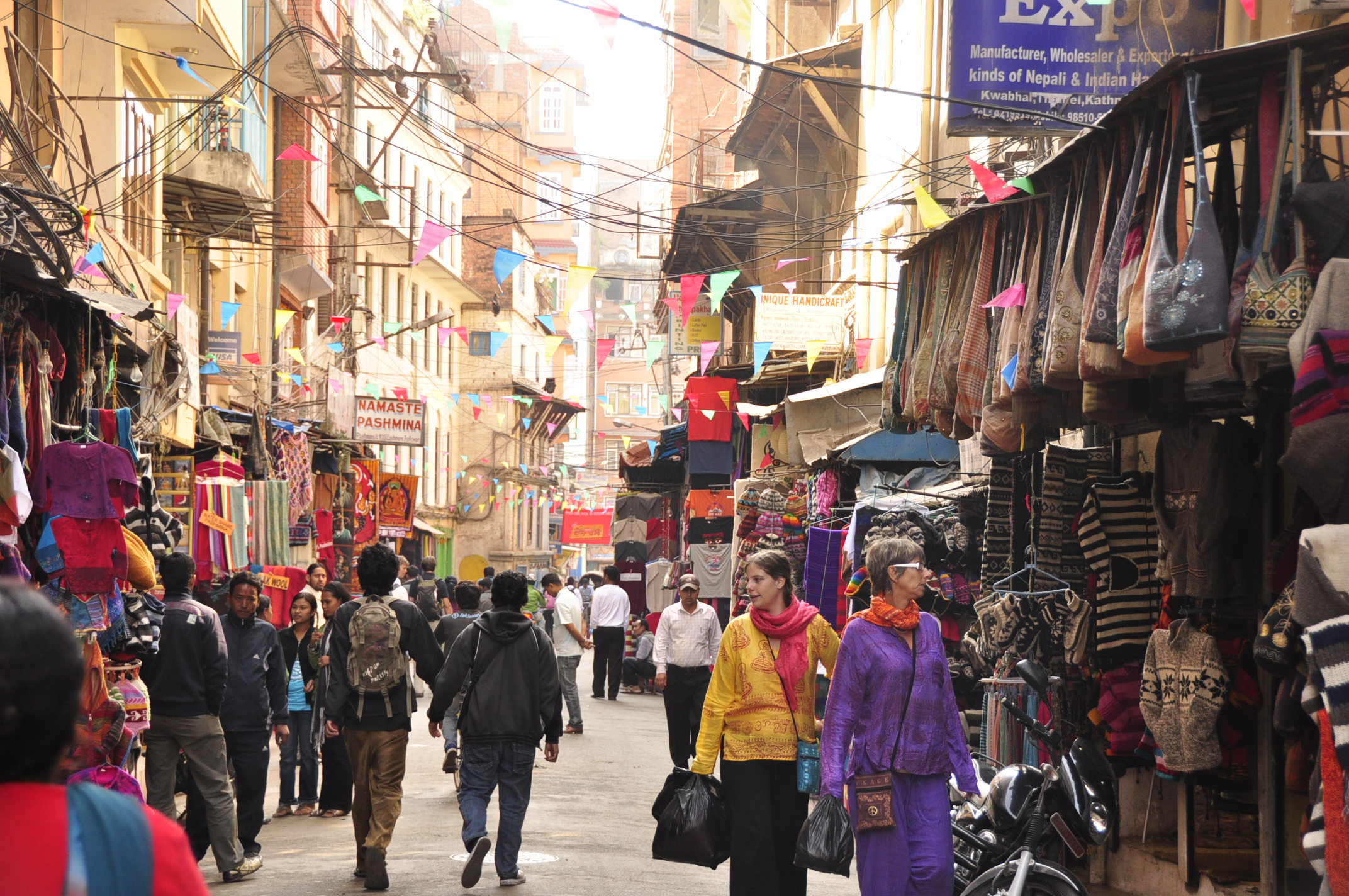
“Kuire”, whispers the girl in front to her friend. Yes, it is always a bit of a shock when I go out of my ‘local’ area. I mean, I’ve lived in Kathmandu longer than I have lived in any other town. That makes me a local right? Beep! Wrong! Being female, tall and blonde definitely sends out the signal ‘not local’. And yet I know the back roads and short cuts better than most taxi drivers; was in Nepal during the whole conflict; stood in the street to watch the funeral procession of the royal family, and suffered the curfews, bandhs, load-shedding, earthquake and blockade just like the rest of the population. But I also have skipped the queue to get into Singha Durbar, been offered a seat on a full bus (not often mind you!), am royally treated at restaurants, and trusted by my bosses and clients alike. On the down side, I am frequently overcharged for fruit and vegetables, have to pay more for the same hotel room (why?) than locals, and cannot walk through Thamel without getting Tiger Balm and a sarangi thrust in my face. “Kuire”, shouts the little boy in the street. His mother and I smile at each other, me through my teeth. Such is life.
Based on the fact I am not local, I will be writing this weekly column giving some insight into the life of an average ‘non-local’ in Kathmandu. Which brings up the question—‘what is an average non-local?’ For want of a better word, let’s use ‘expat’. Yes there are all sorts of racial connotations attached to that word but…
Come in all shades
There are several kinds of ‘expats’ in Kathmandu. There are those who are married to Nepalis, many of whom have been here for decades and have grown-up children and even grandchildren. There are some who have only been married for a short time and are desperately trying to get a visa for their spouse to their home country. There are those who came in the mists of time to study Buddhism and dharma. There are those who are young and enthusiastic volunteers. There are those who are working on a two- or three-year contract with the UN or some INGO, climbing the career ladder. Then there are those like me, who don’t fit into any category and who don’t look at Nepal through the rose colored glasses of ‘newbie-ism’, Buddhism, or any other ‘ism’. We are an anomaly and are quite unique. “Kuire”. Yes, perhaps.
So let’s get this party started by outlining a typical 36 hours in the life of a neutral category expat. Able to afford the luxury of a taxi across town, I’m off to visit a farm on the outskirts of the city. This is an organized trip so it is both social and educational. Quick catch-up coffee with a friend returning from her Christmas break (we decide we can’t afford the food prices in the restaurant despite the fact it is aiming at a local clientele).
Off for a meeting, which is comfortable since it’s with another expat and we are both in sweaters and jeans (unheard of if we were in the West) in the chilly weather.
This is followed by shopping in a large supermarket. Yes, definitely the owner needs my money less than the little pasal on the corner but it has what I want. Get home to discover a long-standing client has sent four urgent pieces of work that need to be completed by 5pm. It’s already 4.15. My client of course leaves the office promptly at 5pm and does not have access to his emails. Some confusion takes place and finally the work is sent to the correct people at 7pm. Is the solar water still hot? Lukewarm will do, so step in. Lights go out. It’s fine, I know where the soap is….
Saturday morning off to a market catering almost exclusively to expats. I cannot afford the prices and have never heard of some of items—but seemingly they are the latest thing in Australia and America. The staff in the coffee shop look stressed at the sudden influx of people wanting lattes, cappuccinos and, what’s that—a baby cappuccino?
My phone rings—the person I met with yesterday is having an emergency work problem which she hopes I can solve. Despite the fact we have only met twice, and never actually worked together, we are both Westerners so we have a bond of trust between us.











